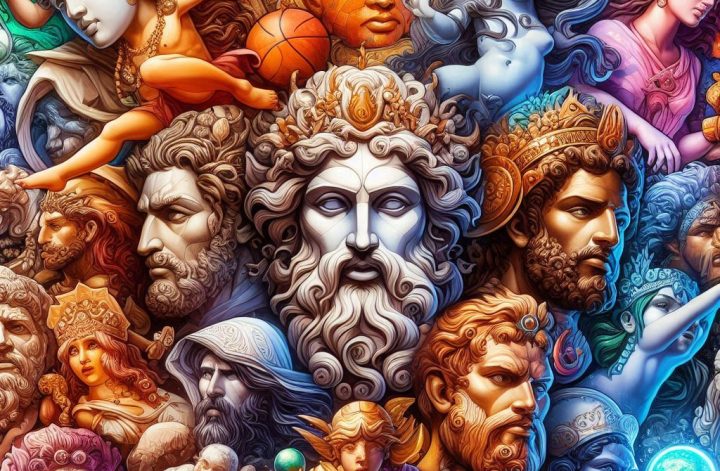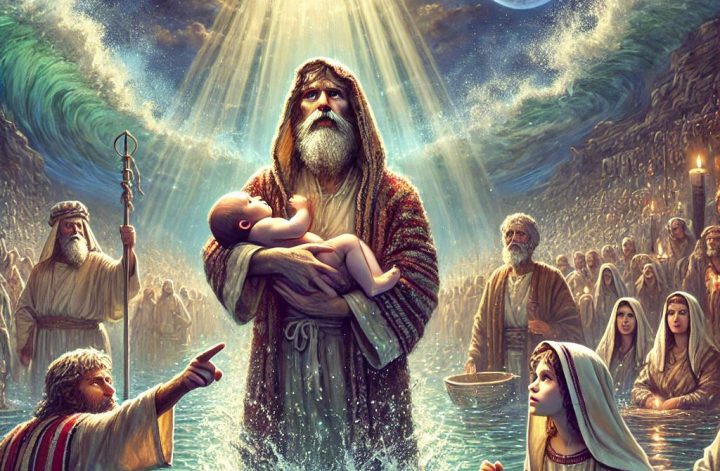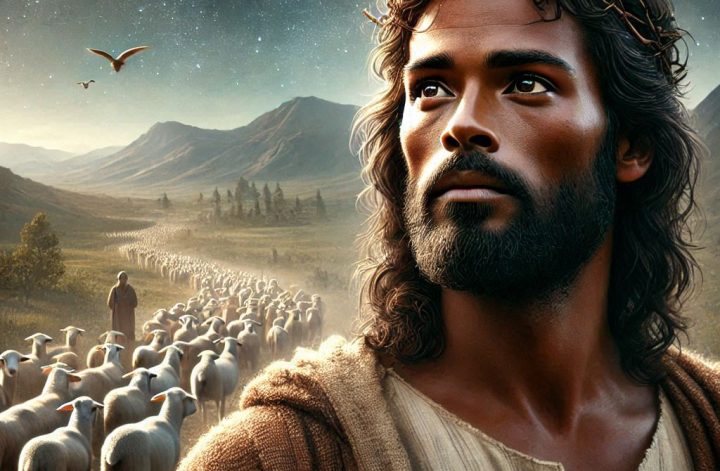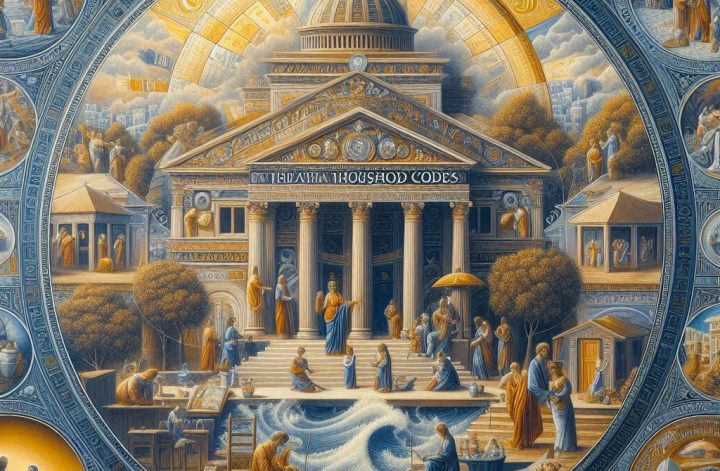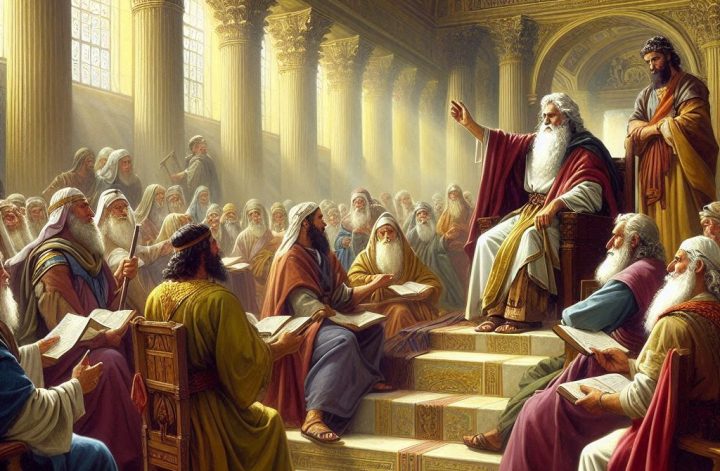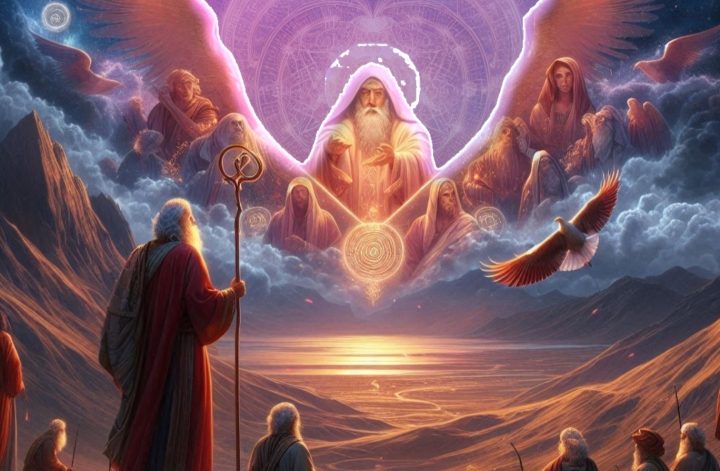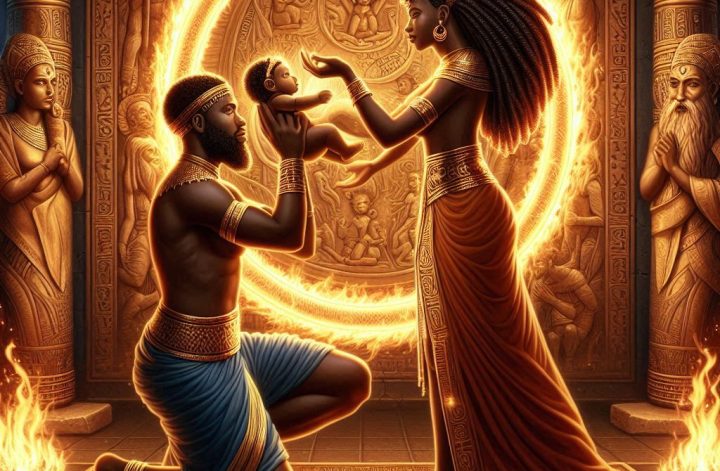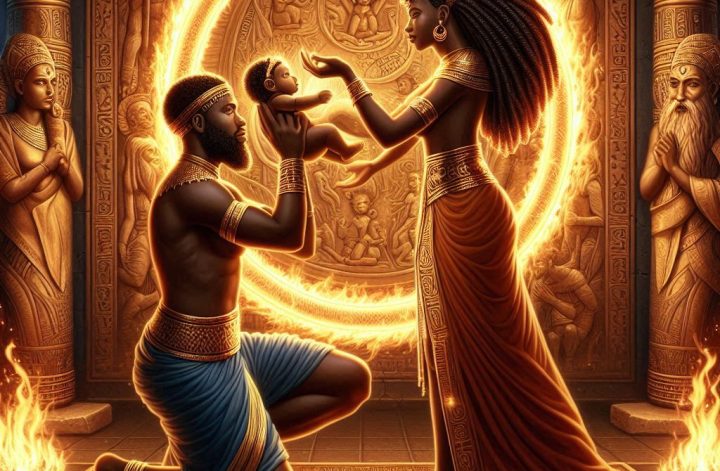“Elohim”, “Allah,” and “God” function quite similarly in their original linguistic contexts. Indeed, the English language is somewhat odd here. The modern rule of capitalizing proper nouns muddies the waters. Initially, without qualifications, these words do not pick out any specific deity. At various points, I have highlighted that elohim is a common noun, not a proper one. In the Bible, elohim refers to Yahweh, Satan, angels, foreign gods, the spirit of a dead human, and so on.
Similarly, “allah” in the pre-Islamic era does not mean what it is now taken to mean. Indeed, the allah of that era was Hubal, the moon god with a dedicated shrine at the famous Ka’ba in Mecca. Some Islamic sources tell us that Hubal was imported from Syria. According to Islamic tradition, Muhammed cleansed the Kabah by destroying the idols and rededicating it to another God identified with the Biblical God, but this narrative is not without problems, as we shall now see.
Yahweh and the Other Gods: Understanding Biblical Idolatry
Background
In ancient times, people did not worship idols as if they were, per se, deities. Agbẹ́gilére, the skilled sculptor who creates numerous copies of a deity’s idol in his shop, understands that these idols are not the real divine beings; if he believed they were, there would absurdly be countless Èṣù and Baal as gods. Moreover, on a successful business day, his shop would otherwise be empty of gods—something no one desired! Everyone recognized that an idol was a vital point of contact, a mediator, to connect with a specific god. Each “idol worshipper” sought to reach her particular deity through the idols and her supplications. Strictly speaking, nobody thought a god was destroyed because his idols were burned. And, of course, a devotee could always get new replacement idols. This is not to deny that devotees sometimes think of their idols as gods, especially after repeated associations. However, idols can be viewed as gods precisely because of their connection with immaterial, external deities.
On John 3:5: Understanding Being Born of Water and Spirit
The Synoptics and John
The Gospel of John is different. It is so different that it is often not considered along with the other three canonical Gospels. In scholarly circles, the term “Synoptic Gospels” excludes John, but not without good reasons. John is believed to be the last written Gospel account. Given the evidence of material dependence among the other Gospels, we may assume that John had access to the other Gospels. Yet, John did not produce a similar work as the authors of the other Gospels. Indeed, John did not seem to care as much about chronology as he did about theology. Hence, he would often move pieces of stories around as he saw fit for his purposes. For instance, whereas the Synoptic Gospels (Matthew, Mark, and Luke) focus on Jesus’ ministry near Galilee with one recorded trip to Jerusalem towards the end of his earthly ministry, John records Jesus’ multiple trips to Jerusalem. Indeed, the Synoptic Gospels have Jesus clearing the Jerusalem temple towards the end of his ministry, while John brings the event forward in telling Jesus’ story. Besides, John omits many of the parables, instances of exorcism, and even the famous Sermon on the Mount while including unique materials like the resurrection of Lazarus in his account. So, if the authors of the Synoptics were interested in historical writings, John was interested in theological writing instead.
On the Mission of Jesus Only to the Lost Sheep of Israel: A Pastoral Dialogue
I chatted with a Pastor friend on the blog entry about Jesus being sent only to the lost sheep of Israel. Among other things, my Pastor friend believes such a claim implies a few discordant things:
- Gentiles are “an afterthought.”
- Jesus is the Savior of only the Jews, and many Jews did not even accept him.
- Gentiles today should be practicing Judaism, not Christianity.
I am sympathetic to him and others who would feel that way. I had similar thoughts and discomfort when I was first confronted with these issues some years ago. However, I do not think the picture is as bleak or fuzzy as my friend may appear to imply. Let’s unpack the points one after the other.
First, I must reiterate that I did not claim that Jesus was only sent to the Jews in the first century. The Matthean Jesus did. In his own words, Jesus understood his mission as primarily to first-century Jews. So, even if a reader dislikes my explanation, the text remains and confronts us:
Matthew 15:24 ESV
[Jesus] answered, “I was sent only to the lost sheep of the house of Israel.”
On 1 Peter 3:1-6: Navigating Ancient Norms with Christ-Centered Wisdom
Background
We previously discussed the Household Code passages found in Colossians and Ephesians. These passages outline how Greco-Roman Christian households were expected to behave in a manner that honors Christ. We argued that these texts do not prescribe a uniform way for all Christian homes throughout history to operate. If they did, it might imply that every Christian household must own slaves. Instead, these passages illustrate Paul’s efforts to engage with a Gentile issue that even Jesus did not confront in his Jewish context.
The Greco-Roman family consisted of a husband and father who held legally granted absolute power over everyone who lived under his roof – a wife, children, and slaves. How he handled his home was tied to his public reputation and dignity. Women typically were married off by age 15, generally to much older men. Usually, love had very little to do with the marriage. Indeed, the Greco-Roman man was not required to love his wife. Paul found himself in this cultural context, and the options were few. He could have demonized the practice, as the European missionaries to sub-Sahara Africa did, and required the Christians to do marriages the “Christian way,” whatever that might have meant. But that move would be somewhat naive, impractical, and even foolish. First, cultural norms do not change overnight; expecting otherwise is embracing inevitable failure. Second, Christians were a minority, accounting for less than 10 % of the Roman empire at the time, and were despised for their culture-inverting beliefs and claims. An Emperor would later actively persecute them. So, Paul seemed to have taken a “slowly but surely” path to winning the Greco-Roman family structure for Jesus. He sowed the seeds and trusted God to enable germination.
Paul and Women (Series Part 1): Genesis 2 and the Equality of Women
The Undifferentiated Adam
No other literature has shaped our world quite like Genesis 2 and 3. These two chapters have generated extensive analysis, and people approach them from diverse perspectives. Some assert that the story underpins the idea of women’s ontological inferiority, arguing that “God made the woman for the man.” In contrast, many readers draw entirely different conclusions from the same text. In this piece, I will demonstrate why I believe Genesis 2 does not teach the inferiority or subordination of women.
These chapters tell the famous story of the creation of Adam and Eve, the first human parents in the narrative world of Genesis. It will benefit readers to keep a few things in mind as we proceed. The word adam is borrowed from the Hebrew language. In the passages we will explore, adam has multiple roles. Sometimes, it refers to the male human in the passage. Other times, it refers to the couple, the man and the woman. It also can refer to the undifferentiated, genderless human – the being from whom Eve was formed. In this entry, I shall use the pronoun “it” to describe the adam, except where gender is implied. The other thing to watch out for is this passage’s narrator’s use of wordplay, significantly contributing to the message. Two instances of paronomasia would prove critical to understanding the narrative. Let’s begin where the actions start in Genesis 2:
Abraham and the Aqedah in the “Hall of Faith” (Series Part 4, Finale)
One of the clear, overarching lessons in the Bible is that there are no true heroes among humans. The best of humanity is merely human at best. Yet, the Bible demonstrates that some individuals can display admirable qualities, even in a fallen state. Alongside these examples, we also encounter characters who are hopelessly self-absorbed. Later writers tend to praise earlier Scriptural figures but often do so selectively, focusing on specific attributes while neglecting the fullness of their characters. These figures become literary constructs where certain aspects of their lives are highlighted, but the reader must remember the whole story and context.
My examination of the Aqedah would be incomplete without delving into the Hall of Faith in Hebrews 11. This chapter underscores individuals who exemplified faith in God’s promises, contributing to the unfolding of God’s plans for humanity. These figures should not be elevated to the status of ideal humans to model our lives after in every respect; nevertheless, they serve as examples of faithfulness to God’s promises. Let’s first consider some straightforward examples:
Still on the Aqedah: A Friendly Exchange with a Pastor Friend (Series Part 3)
While discussing my last writing with a very dear pastor friend, something I think is worth writing about came up. In my previous blog entry, I had zeroed in on the following passage where God spoke to Abraham:
Genesis 22:2 ESV
[2] He said, “Take your son, your only son Isaac, whom you love, and go to the land of Moriah, and offer him there as a burnt offering on one of the mountains of which I shall tell you.”
I argued that two elements in this statement are inaccurate: Isaac is not Abraham’s only son, and we have no clear evidence that Abraham loved Isaac. My friend disagrees with this claim on the grounds that God himself makes the claim, and we may not challenge God’s statement. Now, this is a critical pushback. But if we argue that the statement MUST be correct because God says so, then we have to wrestle with the fact that God earlier (Genesis 17:20) acknowledged Ishmael as Abraham’s son and even promised to bless Ishmael for that reason. The argument would imply a contradiction or divine amnesia. That’s one reason I think the divine statement is not meant to be taken at face value but invites readers to look deeper.
Did Abraham Pass the Aqedah Test? (Series Part 2)
Pre-Abraham State of the World
Scholars have established that the first 11 chapters of Genesis serve as an extended prologue, providing essential context and foundational insights for the narratives that follow. These chapters effectively recount the story of creation and delineate how the nation of Israel emerged as a privileged people within this overarching narrative. Genesis opens with God’s profound intention to create beings that can reflect His image, leading Him to craft a suitable environment for this endeavor. He then forms humanity and imparts clear instructions for their living—guidelines that they are fully capable of following. Yet, it becomes evident that other forces interfere with God’s plan. Before long, the trajectory of this project is disrupted, even with just two humans involved. The situation escalates—by the time there were four named individuals, there was a tragic murder. From that point, the narrative continues its descent into chaos.
Abraham and the Aqedah: Child Sacrifice in the Hebrew Bible (Series Part 1)
Fewer biblical passages elicit intense visceral reactions than the Aqedah, the story of Abraham binding his long-awaited son Isaac for sacrifice as God commanded. This enteric rejection is not unique to modern readers, as some ancient readers, such as the prophet Jeremiah, felt just as strongly against child sacrifice. Traditionally, the account is often read as an instance of Abraham finally demonstrating complete reliance on God. This reading is not without merit. After all, Genesis chronicles Abraham’s sinusoidal faith in his journey with God. When called to leave his home country, Abraham obeyed without any questions (Genesis 12). God promised Abraham that he would become the father of many nations and that his descendant would inherit the land of Canaan (Genesis 12:7). Yet when there was a famine in the land, and he journeyed to Egypt for relief, Abraham had no troubles offering up his wife for potential sexual exploitation (Genesis 12:11-15). He did not even seek God for help – whether to go to Egypt in the first place or how to survive in Egypt. So, in one chapter, we see the man go from exercising enviable faith and departing his homeland to prioritizing self-preservation over the well-being of his wife. This wife was to enable him to become the father of many nations, as God promised. This pattern of highs and lows continues in Abraham’s life, as we shall see shortly. So, the traditional reading of the Aqedah is sensible, though not without problems.


